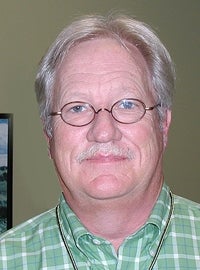The Bridge of Central Massachusetts offers a wide variety of services for people with various illnesses and disabilities. Soon, officials there say, it will also do something entirely different — provide training to employees of other agencies and clinics.
The new program is the result of a five-month training led by Washington, D.C.-based Community Wealth Ventures Inc. Five local nonprofits participated in the program, seeking new ways to generate funding without looking to outside donors.
Stephen Murphy, director of business development at The Bridge, said the new training program will use the methods that the nonprofit has developed in training its own employees.
“We want to use that as the springboard to be able to help other individuals and agencies benefit from the treatment practices,” he said.
Murphy said the agency hopes to start offering training in September, just as the Community Wealth Ventures process wraps up. He said he hopes to make a profit that can help support The Bridge’s programs, but it’s too soon to predict what kind of money it can expect.
The question of how much money the agencies that are taking part in the training will end up making is an important one to Philip M. Grzewinski, president of the United Way of North Central Massachu-setts. The United Way and the Institute for Nonprofit Development at Mount Wachusett Community College spent a total of $75,000 to hire Community Wealth Ventures to do the training. If the participating nonprofits get a good return on that investment, Grzewinski said, the two groups may organize similar programs in the future.
The notion of nonprofits raising their own money through for-profit businesses is not just a gimmick, Grzewinski said, but a means to handle a serious funding shortage. He said the number and size of nonprofits in the state is growing, and funds available from private donors and government grants aren’t keeping pace.
Barbara Abraham, executive director of the Multi-Service Center in Leominster, said the situation is particularly difficult for small groups. She’s the only full-time staff member at the center, which has a $250,000 annual budget. With help from Community Wealth Ventures, Abraham said, the center plans to expand the only program that it charges fees for — a small children’s theater program.
Abraham said the agency would like to bring in a few thousand dollars a year in fees. It won’t be much money, she said, but unlike many grants and donations, it will be unrestricted funds.
Cornerstone Performing Arts Center in Fitchburg won’t be starting a new program after wrapping up the training, but managing director Pete Cormier said the group’s work with CWV has helped it set priorities for the future. After doing market research and looking at competitors, he said, the center decided to raise its adult ticket prices from $10 to $17 for the next season.
“It’s not just the ticket price,” Cormier said. “Our whole marketing and promotion are really based more on customer needs now.”

